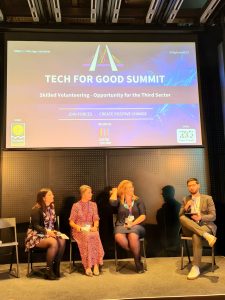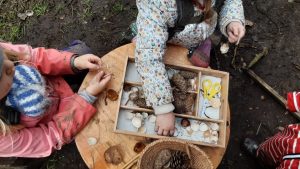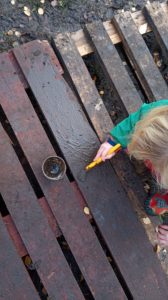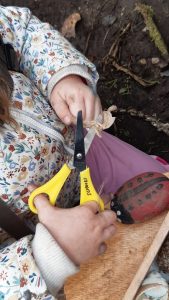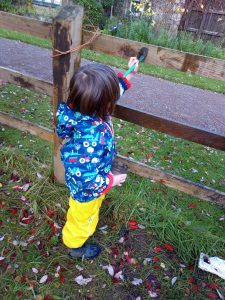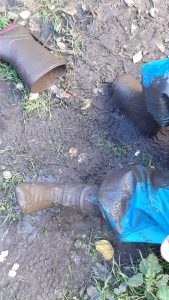Autistic Adult Support Fund open for applications
The Autistic Adult Support Fund launched today (Wednesday 16th August 2023) aiming to help adults with an autism diagnosis, self-identified autistic adults, and their families and carers understand what neurodivergence means for them and improve their wellbeing.
The Autistic Adult Support Fund will provide £500,000 for the six-month period from October 2023 to end of March 2024.
Facilitated by Inspiring Scotland and funded by the Scottish Government, the Autistic Adult Support Fund builds on the work of a pilot which ran between 2020 and 2023 and funded seven organisations to provide post diagnostic support to autistic people.
Erica Judge, Director of Funds at Inspiring Scotland said:
“We are pleased to manage this fund from Scottish Government which will ensure that more autistic people and their families can help better understand their diagnosis by accessing the support they need.
“We know that there is a great need for this programme due to feedback from people who had received support from the pilot project, describing it as life changing.
“Funding will be available for Scottish not-for-profit organisations working closely with autistic people to help close the gap in provision of help and support to this community.”
Small grants of between £15,000 and £30,000 are available to support smaller, grassroots, locally based projects. Large grants of between £30,001 and £75,000 are available for national or regional projects.
Funding is available until 31 March 2024. It is hoped that this fund will run on a recurring annual basis but is subject to Ministerial approvals as part of Scottish Government’s annual budget process.
The deadline for applications is 12pm on Wednesday 13 September 2023.
For more information and how to apply, please visit inspiringscotland.org.uk/autistic-adult-support-fund
Support in the Right Direction 2024 – 2027 fund open for applications
A new phase of the Support in the Right Direction (SiRD) programme was launched today (Wednesday 12 July) to fund independent support services and help people use self-directed support options to organise and manage their social care and support across Scotland.
Running from April 2024 to March 2027, applications are now open until midday on Friday 15th September 2023 for the fund, which will see £3m per year available across Scotland.
The SiRD programme is funded by the Scottish Government and is managed by Inspiring Scotland, and aims to ensure that people who use social care have access to independent support, advice, and advocacy, wherever they live in Scotland.
Self-directed support is an integral part of social care, giving people choice and control over the type of support they want, who provides it and how it is delivered. Independent support, which SiRD will focus on helps people get information and advice on social care and the range of self-directed support options in order to choose the best option for them. Without it, care users and carers might not be able to access the social care they need, or make use of it in the way they would like.
Previous rounds of funding through SiRD have increased and maintained delivery of independent support across Scotland for people who require social care. Since 2018 more than £11 million has been invested. This investment has supported more than 14,000 people and families to plan and implement the social care support they need to live a good life.
Independent support services can now apply for SiRD funding to deliver independent support between 1 April 2024 and 31 March 2027. For more information and how to apply, please visit inspiringscotland.org.uk/support-in-the-right-direction-2024-2027/
Applications close midday on Friday 15th September 2023.
Creative Communities Glasgow programme launches
The Creative Communities Glasgow programme launched today (Wednesday 24 May 2023), thanks to £745,000 funding from Glasgow City Council’s Communities and Place Fund, part of the UK Shared Prosperity Fund.
Facilitated by Inspiring Scotland, the new Creative Communities Glasgow programme will support community organisations in the area to develop and run cultural and creative projects with a focus on wellbeing for those who may face barriers to accessing cultural activities.
Applications are open until 30 June 2023 for grants up to £80,000, and the programme will run from August 2023 until March 2025.
Erica Judge, Director of Funds at Inspiring Scotland said:
“We know from the work the Inspiring Scotland team has done so far through our previous Creative Communities programme that there is a need and great appetite for these projects in Glasgow, where there is also an incredible hub of creativity and network of peer support already in place to build upon.
“Each Creative Communities funded project is community-led and as a result is unique, personal, and reflects the strengths, interests, priorities and talents of the people taking part.
“Taking part in cultural activity is known to have many benefits including strengthening community ties, improving mental wellbeing and reducing loneliness. We would encourage applications from community-based organisations in Glasgow seeking to explore people and communities’ creative sides and experience the benefits in terms of building relationships, improving happiness, and providing stigma-free pathways to other forms of support for those who need it.”
Previous Glasgow projects included Maryhill Integration Network’s Museum of Things project, which supported refugees and asylum seekers to create an exhibition of objects related to their experiences of leaving their home countries and becoming New Scots, and Stronger Together Enterprise, who provided dance and drama classes to children and young people from minority ethnic backgrounds.
Councillor Susan Aitken, Leader of Glasgow City Council, said:
“The Creative Communities programme will support local organisations in Glasgow develop and run creative projects which will help the wellbeing of people in communities across the city. Previous projects of this kind in Glasgow have brought real benefits to a range of different groups.”
Applications and further information are available at the Creative Communities Glasgow web pages
The application deadline is midday 30 June 2023.
Specialist Volunteer Network at the Tech for Good Summit
Inspiring Scotland’s Specialist Volunteer Network (SVN) team supported the Tech for Good Summit hosted by the Scottish Tech Army (STA) on Thursday 20th April. In this blog Tommy Seymour highlights the important work done by the SVN and STA, as well as his key takeaways from the event.
‘Come ready to listen, leave ready to act’ was the strapline of the third annual Tech for Good Summit, hosted by our friends at the STA. Since the STA’s inception in 2020, they have recruited over 2,000 tech volunteers and have worked with more than 300 organisations across Scotland.
Both the Inspiring Scotland’s SVN and STA provide a powerful and unique resource for the Scottish Third sector, and the last few years has seen a signposting partnership and collaboration develop with a number of Specialist Volunteers donning STA hats, and vice versa.
This partnership was shone under the spotlight with Inspiring Scotland’s SVN Executive, Elaine Crichton, joining Joanna Allen – Head of Projects and Programmes at STA, and Dr Jansev Jemal – Director of Pro Bono Economics; for a panel discussion on ‘Skilled Volunteering – Opportunities for the Third sector.’
In this panel Elaine talked about Inspiring Scotland’s SVN, of over 500 Specialist Volunteers who were called upon to support over 200 charities last year. Elaine was able to provide an example of the essential work done by the SVN, talking of a charity receiving a VAT rebate of £27,000 through the intervention of a Specialist Volunteer. An important saving as this equates to the salary for a project worker for a year in the charity sector!
According to Elaine:
“When a tech request is made through SVN we find a lot of the time the issue is not knowing what you don’t know.”
We have a number of incredible tech and digital Specialist Volunteers who can help organisations explore digital and enhance IT business systems so that they work for you.
Our Specialist Volunteer, Michael Woo – Associate Director at Protiviti, always stresses how there is a mindset shift needed to embrace tech, and not just submitting the IT support request when something breaks.
Tommy’s Tech for Good takeaways:
- Alastair Forbes, Founding Director and CEO of STA, highlighted some key findings from an NCVO 2021 survey which stated 81% of charities changed how they used tech during the pandemic – and the Tech for Good movement, bridging the gap of what’s currently out of reach for the Third sector. He described a Tech for Good UK industry of 30,000 employees – which would effectively double if the wider UK Tech industry of 3 million dedicated 1% of their working hours to Tech for Good.
- Over 80% of UK charities see tech as an opportunity, with around 50% of those seeing themselves as just at the start of their digital journey. UK Pro Bono Association partner, Ed Mayo of Pilot Light, described skilled volunteering as good for business, with powerful messaging around “give back, get back.”
- Madeline Hutchinson, Global Head of Tech Philanthropy at Morgan Stanley, whose Glasgow’s Women in Tech group supported the SVN with development days and a mentoring partnership over the last year. Madeline described skilled volunteering as Win – Win – Win! It provides Third sector organisations with access to tech; opportunity for volunteers to challenge and stretch themselves, gaining experience in end-to-end delivery; and for companies who support skilled volunteering to showcase talent development and retention.
- Fiona Burton, Managing Director of AND Digital, Edinburgh, explained skilled volunteering and the fundamental mindset of businesses and Boards who encourage it, as being visionary and future thinking.
With staff and financial resources being stretched further than ever, it’s important that charity staff and leaders focus on what they do best – this is where support from SVN can step in.
Even if you have a seedling idea, reach out to the Specialist Volunteer Network or find out more about our work and we can connect you with experts to support you through discovery and design, and plug you into the Tech for Good Ecosystem.
Celebrating National Mentoring Day
intandem is a Scottish mentoring programme which supports young people looked after at home. Volunteer mentors make the programme possible and the reason we’re able to make a real difference in the lives of young people.
A consistent, caring mentoring relationship gives children and young people the foundation to overcome trauma experienced in the past and most importantly intandem, offers a place for a young person to have fun. Mentors also create happy memories with young people.
To celebrate National Mentoring Day, Rachael who volunteered as an intandem mentor with partner charity Move On shares what it’s like being a mentor and why she got involved.
What interested you in becoming a volunteer mentor?
Hello, I’m Rachael! I’m 27 years old and live in Midlothian. I’m a full-time civil servant with a keen interest in photography.
I was interested in doing something to help kids in my local area and to give something back to the community. After a bit of research, I thought mentoring would be a great way to support and encourage a young person.
What sort of training did you do before becoming a volunteer mentor with Move On?
I took part in a comprehensive training programme with Move On before being matched with a young person . The training took place every Saturday for 10 weeks and covered areas such as: child protection, prejudice and discrimination, boundaries and identifying different types of abuse. I attended each session and completed supplementary homework tasks.
What support is available to you as a volunteer mentor?
I had a dedicated development worker from Move On who was always on hand to give advice, updates and support. Move On also run regular training sessions which are open to volunteers to sign-up.
What sort of activities did you do with your young person?
We enjoyed swimming, trampolining and library visits to read my young person’s favourite book ‘Grampa’s Great Escape’ by David Walliams. On some occasions we would visit a café for a bite to eat and a chat. During Covid-19 we mainly went for walks in the local area. We would always take a pair of binoculars for birdwatching and an instant camera to take photos for my young person’s journal. We also list the birds that we see on our walk.
What did you enjoy most about being a mentor?
The thing I enjoyed most was our conversations. . He made me laugh and I enjoyed being in his company. He is intelligent and funny and always had a great story or interesting fact to tell me. I found it very rewarding. We had such a good trusting relationship and I am pleased that he felt able to talk to me about anything he wanted to.
What’s your best mentoring memory
For my young person’s birthday, we went to the cinema to see the movie ‘CoCo’. We got popcorn, chocolate and tango ice blasts! We both enjoyed the movie so much we spent the whole car journey home singing the main song ‘Remeeeeeember me…’ from the top of our lungs.
What difference does having a mentor make to the life of your young person?
I think a mentor can make a huge difference to the life of a young person.
A mentor is someone who genuinely cares and always has an open ear to listen to the good things and the bad without judgement.
A young person can enjoy new opportunities, try something new, develop socially and grow in confidence.
What skills has being a mentor taught you?
I have developed strong communication skills which I think is central to a successful mentoring relationship. I have found that active listening is key to understanding how a young person is feeling. Being responsive, by showing interest, empathy and understanding, made my young person feel confident in talking and sharing things with me. These transferrable skills are essential in many areas of life.
intandem is a national mentoring programme, managed by Inspiring Scotland and funded by Scottish Government and The Robertson Trust. Intandem supports a portfolio of 13 partner charities, providing weekly mentoring for young people aged 8-14 years, living at home on a compulsory supervision order or in kinship arrangements.
Find out more on becoming a volunteer mentor.
Supporting Women, Reducing Harm: Supporting a National Conversation
In April, Inspiring Scotland’s Perinatal and Infant Mental Health team co-hosted Supporting Women, Reducing Harm, the first-ever national conversation on how services should care for families affected by substance use in the perinatal period.
This event was in partnership with Scottish Government, Perinatal Mental Health Network Scotland, NHS Scotland, third sectors partners and women with lived experience. It followed the 2021 report Supporting Women, Reducing Harm.
Evidence shows that using drugs or alcohol during pregnancy and the postnatal period negatively affects the physical and mental health of both mother and infant. There is a recognised need to improve the services available for substance-using women and their infants during this time and this was the starting point for the Supporting Women, Reducing Harm event.
The conversation brought together individuals and organisations with expertise in maternity and child care, substance use, and maternal and infant mental health, alongside women and families with lived experience, to develop recommendations on models of service provision for Scotland.
The attendance of so many stakeholders ensured a dynamic discussion that reflected the broad experiences of the participants. Over 300 people joined the day, representing many different sectors across the breadth and width of Scotland – the Borders, to the Shetland Isles.
“One of the things that made this event so special was that it brought together a cross-sector audience from Scottish Government, NHS, local authorities, charities and more. Bringing together and leveraging that level of collective insight and experience will be key for unlocking the challenges that face women and families in Scotland.” Leanne Anderson, Perinatal and Infant Mental Health Fund Manager, Inspiring Scotland
Prior to the online session, women with lived experience were interviewed to help shape the agenda and discussions. During the day, Sharon Graham represented the voices of lived experiences and spoke impactfully, clearly stating that now is the time for action:
“We had a coming together of professionals and lived experience, working in collaboration due to having one thing in common, wanting the best outcome for those we support. The time has come to change the “us and them” scenario and for action to happen.” Sharon Graham, Voice of Lived Experience
The event had really positive feedback from the attendees:
“This was an incredible, inspirational and truly exceptional event – very heartfelt and it was so good to see how many people were in agreement of supporting women and the challenges life brings to them. Captivating and extraordinary. So pleased to see the collaborative recognition of this and great to hear from real people with lived experience” Attendee
“The passion and wish to collectively make a change was palpable. It felt like the right feet were around the table.” Attendee
Several key themes emerged:
- It is important to take the time to listen to women involved and find out what their needs actually are (not to make assumptions)
- A wide range of third sector organisations play an important role in delivering flexible, non- stigmatising support
- Joined up services and solid wraparound care are critical as they make it easier to access support and avoid women having to repeat their story multiple times to different services
- There is a greater awareness of the need to reduce stigma, given the clear impact that stigma has on women and their families accessing services
At the start of the session, Angela Constance MSP, Minister of Drugs Policy, announced a short-life working group to further examine the issues and make recommendations for future support. Kevin Stewart, Minister for Mental Health and Wellbeing, closed the day, thanking participants and assuring us all that the work would be taken forward.
In terms of next steps, Scottish Government are currently developing the process for membership of the short-life working group, more information on this will follow in due course, and Inspiring Scotland are creating a report based on all feedback received on the day.
We would like to thank all partners and attendees involved in the event and especially those with lived experience. Thank you for sharing your experiences so openly and honestly to help improve support for families across Scotland.
Further information
- Read the full set of Supporting Women Reducing Harm Event slides and feedback
- Read the original Supporting Women Reducing Harm Report
- Read the report ‘Families Affected by Drug and Alcohol Use in Scotland’
Matt Baker guests blogs on Creative Communities programme after attending its showcase earlier this Month.
Artist and founder of the Stove Network, Matt Baker guests blogs on Creative Communities programme after attending its showcase earlier this Month.
Firstly, I’d like to congratulate everyone who took part in the Creative Communities programme – from those who first thought up the idea and made it possible – to everyone who has been involved in the 46 communities across the country. As an artist myself I know how exposing and vulnerable it is to put your artwork out in public view and I want to say a particular big up to everyone who has works in this wonderful show – you are all legends!
I am a community artist and when I look at works like these I find myself dreaming a little and reaching into what people are wanting to say about their world. And then imagining a little further into what was happening when they were made. I see the chats, the new friendships formed, the deals made in families to make the space to be there, conversations about shared places and people, the advice given on local issues, the dreams of change, the new skills learned and the new understandings of who we are as people.
Through this lens we see something fundamental about this approach to creativity and culture. We see how taking an active part in making culture, as participants, gives us so much more than the satisfaction of self-expression and making something to show to others. It creates new connections in communities, new stories and knowledge that bind people together in deep ways. Ways that combat the isolation and anxiety that plagues our society and leads to breakdowns in people, families and the fabric of community that should support us all.
As well as health, and skills, and justice benefits, these projects can spark new confidence and ideas that lead to new projects to improve places and sometimes even new enterprises and businesses.
Research study after research study has shown active participation in creativity leads to happier people and happier places. And yet we have all grown up with the idea that culture is not made by the likes of us, it is made by special people and our role is just to admire it, not be part of making it. Projects like this give us a glimpse into another possible world. A world where it is completely normal for everyone to be creative and be part of making the culture of Scotland.
- Imagine if at school all our creativity had been nurtured, be that in singing, gardening, cooking, den making or making up stories.
- Imagine if every town and village had a community festival where everyone took part and it was one of the ways that places welcomed new people into being part of their future.
- Imagine too what such a vision would mean for those working in the arts. Long term jobs working alongside communities, jobs that would support other parts of their careers and help make amazing art that would put us on a world stage as a country, where we value things differently and put people first.
If we are going to move to a way of doing culture in Scotland that is centred on participation, then we need a plan that brings into being creative projects in education, in health, in community development and regeneration.
And we also need a progression pathway of projects like Creative Communities that work at the grassroots of places and start to build networks and skills so that larger projects can then take root in those places and arts workers can gain experience too. The sister project of Creative Communities is called Culture Collective, it currently has 26 projects of regional scale running around Scotland. Reading the Creative Communities report and looking at the great work in this exhibition, it seems obvious to me that Creative Communities could work as a learning pathway towards a Culture Collective project in these places in the future.
As a country we have a wonderful folk tradition of collective creativity through stories, songs and ceilidhs. In the context of Covid, the mental health crisis and the climate emergency we can see that the old solutions are just not work working anymore. They are tearing us further apart. We have to try something new, something that brings us together again. Creative communities has been showing the way in 46 places around the country and as we say in Dumfries “may it continues on!”.
Find out more about the showcase event.
Find out more about Creative Communities programme.
10 ‘Beautifully Ambitious’ Years of Link Up
Andrew Magowan, Link Up Programme Manager shares his reflections on Inspiring Scotland’s Link Up Programme turning 10.
My colleague described our plans for the celebration as “beautifully ambitious”. True, but the phrase is also a great way to capture the essence of Link Up since its launch in 2012.
Link Up was never really a programme, more a way of working; a mini movement seeking to harness the strengths and will of local people to affect change. Our aspiration was significant: to embed an approach that tackles disadvantage by empowering local people to help themselves, each other, and their community.
It’s impossible to do justice in this blog to what has been achieved and learned over the past ten years. But in keeping with our theme, I like to think we were ‘Truthful, Useful and Hopeful’[1].
Truthful
Whilst we have made critical steps towards our aspiration, it remains work in progress. However, thousands of Link Up participants have made material improvements to their lives, setting themselves on a path to a brighter future. Equally, Link Up has initiated community responses that are offering significant potential to deliver wider and enduring change.
Such successes run through our work, but I trust never in a sugar-coated way. We have always tried to shine a light on the reality of people’s lives. Those lives are often challenging beyond belief. And as we have demonstrated time and again, people’s journey is all too often marked by a cycle of crisis-stabilisation-recovery-crisis-stabilisation…etc.
As a corollary, achieving meaningful progress takes time, often years. It is a position we accepted from the outset, giving our workers permission to operate at the pace of the individual, recognising that their (and/or other community members’) sustained presence in the life of that person is often the most valuable gift we can provide.
Interestingly, Link Up’s unorthodox way of working (often pastoral) proved challenging for many of our hosts in the early days of the programme. However, we had courage in our convictions, and by sticking to our principles and evidencing the power of our approach, most hosts became strong advocates and, with our workers, key enablers of our day-to-day work.
We also sought to challenge convention on the nature of a programme like Link Up. It would be easy to frame it solely in terms of community development. We prefer to explain our approach as being as much about human development as it is about community development.
Where we have more to do is in influencing the wider adoption of the learning from Link Up. The economics of public spending is largely behind this. However, there is a need to influence a wider rethink on why and how we invest in communities. Critically, to have greater ambition, supporting communities to ultimately become regenerative. More on this below.
In part, our inability to realise this influence, is a function of how we framed our language. For too long we adopted a ‘build it and they will come’ mentality i.e. establish Link Up, people will make change happen and problems will be overcome. What we are learning now is that we need to illuminate the ‘line’ from individual action to collective action, to co-production of local solutions, to broader place-based working, to the creation of a regenerative community.
Useful
Since 2012, we have sought to measure the impact of our work and understand how that impact has been affected. This has helped to inform and shape policy and practice in numerous areas including asset-based working, place-based working, trauma-informed practice, health inequalities, community empowerment, community safety, public sector reform and Covid responses.
Whilst our work has shone brightest on aspects of social regeneration, particularly in relation to health and wellbeing, it is also highlighting a development approach to the creation of a regenerative community. This is one in which local people and organisations overcome the seemingly intractable problems that blight so many places and are delivering sustained and progressive renewal in social, economic, environmental and democratic terms.
At the heart of this approach, is an understanding that we are dealing with a human and therefore, relational system.
This framing has been at the core of our way of working since launch. It is writ large through everything we do: our pace; being interested in and taking time to understand people’s lives; creating welcoming spaces without agenda; focusing on human, not statutory needs; illuminating and using people’s strengths to build connections and make change happen; intensive 1-2-1 support. Our local workers have been the driving force for this.
Our 2016 paper, provided insights into the personal and situational factors that make our workers so effective in this regard. For me, it remains a ground-breaking piece of work that informs how we identify, encourage, recruit, develop and support the workforce that will be essential in taking our aspirations for renewal in our communities to scale.
The role our workers play is physically, mentally, emotionally and spiritually draining. It is testament therefore to their resilience and perseverance, that almost half of our 17 workers have been with us for over seven years, two since 2012. It’s a fact that I am perhaps most proud of because it talks to the quality of care and support we have given our workers.
For our workers, four things stand-out:
- giving them space and encouragement to be themselves and not be afraid to take risks;
- acting as a supportive buffer between our workers and their host by helping the latter to understand the challenges of a worker’s role;
- regular emotional and practical support including access to psycho-therapy support, reflective practice sessions and continuous professional development (e.g. trauma, bereavement and suicide informed practice; mediation and conflict resolution; nonviolent Communication);
- removing the burden of most fundraising and reporting responsibilities.
Hopeful
The principal enabler of the above and everything that Link Up has achieved, has been Scottish Government. Ten years ago, they chose to invest in a programme that was arguably at the cutting-edge of community-based work, but one that also carried significant uncertainty in terms of its evolving approach and the impact it would have.
For me, this commitment is a powerful demonstration of the invaluable role Scottish Government can play in taking risks to test new ideas and prove what works and what doesn’t work. It is a role few other public sector bodies would be prepared to take, but one which will be essential if we are to turnaround growing inequalities and rising poverty.
I would also hold up our experience as being an exemplar of strategic partnership working and as such, a model for future relationships. Firstly, Scottish Government’s continued financial support has been instrumental in helping us to leverage additional funds such that 41% of our 2022-23 funding will come from non-Scottish Government sources.
Additionally, our ability to engage with and share learning across Scottish Government Directorates has been mutually beneficial; helping to shape policy and help us to understand how we might contribute to the delivery of national outcomes. I also like to think that being funded by Justice, Health and Regeneration has helped build cross-Directorate relationships, contributing for example, to a wider dissemination of understanding on place-based working.
I trust my Scottish Government colleagues feel we have repaid their trust in terms of impact and the rich learning Link Up generates. Sharing that learning and seeing it inform policy and practice has, I hope, been as energising and motivating for them as it has been for us.
But perhaps the single most valuable outcome of this learning has been what it tells us about the power of local people to make change happen. I recall in the early days of the programme a story about a Link Up participant securing her first job after being unemployed for 15 years. Most evidence suggested she would never work again. And other more recent stories including a woman having the courage to leave an abusive relationship and another changing her life to such a degree she regained access to her child.
These transformational shifts speak to the potential in our communities. A potential that Link Up has only scratched the surface of but is undoubtedly our greatest asset in our fight against inequality.
Taken together, the experience of the past ten years gives me hope; “not the conviction that something will turn out well, but the certainty that something makes sense, regardless of how it turns out” (Vaclav Havel). That ‘something’ is the collective understanding that Inspiring Scotland and others[2] are accumulating on how we build a brighter future for our most disadvantaged communities. If we use it wisely, the type of change we have so long sought for our communities and the people who live there is within reach.
[1] The character of Patricia Westerford in Richard Powers’ 2019 Pulitzer Prize-wining, “The Overstory”, uses these 3 terms as a framework to guide her writing in the final chapter of her.
[2] See especially, Corra Foundation (via ‘Getting Alongside Communities’), Scottish Community Development Centre (via ‘Strengthening Communities’), SURF (via ‘Alliance for Action’), National Lottery Community Fund (via ‘Our Place’), Creative Scotland.
Thrive Outdoors Blog Series: Case Studies- the children’s experience
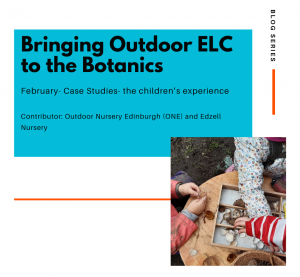 This month for the sixth instalment of our Botanics Blog series we hear from the two nurseries taking part in the pilot- Outdoor Nursery Edinburgh (ONE) and Edzell. Both nurseries share their own case study on a child’s experience of ‘The Wee Garden’. Hearing about the difference this outdoor space has made to each child is truly remarkable.
This month for the sixth instalment of our Botanics Blog series we hear from the two nurseries taking part in the pilot- Outdoor Nursery Edinburgh (ONE) and Edzell. Both nurseries share their own case study on a child’s experience of ‘The Wee Garden’. Hearing about the difference this outdoor space has made to each child is truly remarkable.
ONE (Outdoor Nursery Edinburgh) Case Study- Rosie*
There is a particular type of feeling that comes from being in an outdoor environment surrounded by nature. There have been many recent studies that tells us of the benefits of being in nature. It not only lifts us emotionally but physically reduces our production of stress hormones among many others. This is most evident to me when we have children who need support with their emotions – they might be nervous or shy or have other emotional challenges, but the same change happens when we play outside. They are immediately more settled, curious and have the freedom and space to explore. They are able to build on their own learning at their own pace and it is an absolute joy to watch.
Rosie* has recently transitioned to our 3-5 room. It’s been a tough couple of years for everyone but especially for those little ones who need encouragement to find their confidence. We have always supported Rosie* in finding her confidence and as time has gone on, she has slowly come out of her shell.
Over the time that Rosie* has been with us in our 3-5 room she has been gaining in confidence, but most noticeably is when we are spending time outdoors and especially at the Botanics. *Rosie has been able to express herself and make choices about her own learning. She has really enjoyed the experiences set up there, such as the threading, making patterns and has had the space and time to form friendships with others in her class.
By observing *Rosie at the Botanics, we have been able to see her taking part, asking questions and choosing which experience she is interested in taking part in.By allowing that space and time in an outdoor environment we have seen a growing of confidence that I believe wouldn’t have grown in the same way, had we spent the time indoors. It’s been a real pleasure to watch her find her voice and be able to express herself in what can be a very noisy and hectic world!
Edzell Case Study- Michael*
Michael*, aged 3, comes to Edzell nursery full time and has participated in the Botanics ‘Wee Garden’ pilot since the start. At nursery, he was a child who preferred to stay indoors and would not go outdoors spontaneously. He often had to be encouraged and he would give clear explanations as to the reasons why he wished to stay indoors or sometimes he would simply say a flat no. In addition, when we first started, we walked from nursery to The Wee Garden and this often proved challenging as he found the walk plus the time at The Wee Garden quite taxing. Although, we perceived as we wanted him to develop his physical skills and his overall health and wellbeing through participating. However we had to respect his voice and find a balance between what he wanted and the wishes of his parents and the nursery. Therefore, after some discussion with the nursery, Michael’s* parents decided to reduce his hours and build up his stamina, so he stopped doing the visits to the Wee Garden for a short time in the Autumn term and the staff were very intentional in trying to get him more physically active at nursery and building his enjoyment of the outdoors.
When Michael* returned to full days and came back to The Wee Garden regularly, he was going outdoors regularly at nursery and he was seeing the children extending experiences that they had at The Wee Garden at the nursery, which encouraged him. He chose the date of his return with his parents and he came back with enthusiasm. Although the walk back and forth was still a challenge for Michael*, he could now cope but when we changed to using the bus to gain more time at the garden, he was very happy! He joined in with all the activities including the mud kitchen, digging, using the loose parts to build dens and ball runs and explored the area in various ways alongside the other children.
Now that we have come to end of the pilot, Michael* has shown a huge improvement in his overall health and wellbeing in several ways. His stamina at nursery has increased so there is no longer a big drop in energy at the end of the week, which was previously sometimes the case. He goes outside regularly with no encouragement, puts on his waterproofs easily, with just a little help to put the legs over the wellies ‘so the mud doesn’t go in’. Michael* was one of the children who benefitted the most form the experience particularly with regards to his physical health. Where he struggled with the walk there and back, he is now physically much more able and has gained increased endurance and now has enough energy to last the whole day. His focus has increased and at home his parents have noticed greater overall stamina and better sleeping.
* Please note each child’s name has been changed for safety purposes.
Enjoy this blog? Then keep an eye for the very last blog in this series going live on the 18th of March where we share our reflections on the pilot outdoor nursery at the Botanics.
Join in the conversation or just chat with us at:
Facebook @ThriveOutdoorsScot
Twitter @Thrive_Outdoors
Instagram @thrive_outdoors
or by email to amy@inspiringscotland.org.uk
Useful links
Find out more about Outdoor Nursery Edinburgh (ONE)
Find out more about Edzell Nursery
Read our previous blogs and scroll down to the bottom page ‘Our news’ section.
Looking after social work and social care staff
A new £1 million fund has been established to support projects which look after the wellbeing of staff working in social care.
The Workforce Wellbeing Fund for Adult Social Work and Social Care will be managed by Inspiring Scotland and provide grants of up to £10,000 until December 2022.
Minister for Mental Wellbeing and Social Care Kevin Stewart said:
“Everyone working across social work and social care has shown an invaluable commitment to delivering a first class service and compassionate care through the most difficult of times.
“This fund is about giving staff anything which makes them feel better and supports their resilience. Applications can be as creative as possible, as long as they focus on our most valuable asset, our people. Grants could be given for activities or to purchase equipment that will improve the wellbeing of the workforce. Ask your staff what they most want or need, and please take advantage of this fund to help them get it.
“Workforce wellbeing must remain a priority as we continue to move through this pandemic and recovery. We will overcome the challenges ahead if we look after our people.”
Head of Funds at Inspiring Scotland Kaylie Allen said:
“We are delighted to be working with the Scottish Government on this programme. The importance of the people providing frontline care and the challenges they have faced delivering the most essential services over the last 18 months cannot be overstated.
“This fund will provide a flexible and easy way for adult social care and social work staff to access support for their own wellbeing.”
The Scottish Government has made £12 million available to support the wellbeing of the health and social care workforce. This new fund, which is open to applications until 29 July 2022, will ensure £1 million of targeted support towards the wellbeing of staff in the social work and social care sector, which faces unique challenges in accessing available funding since it consists of a mix of local authority, private and voluntary sector provision.
Background
Please see the webpage for further information and details of how to apply to the Workforce Wellbeing Fund for Adult Social Work and Social Care.
All applications will be screened by a multi-agency panel comprising of Inspiring Scotland, the Scottish Government and a member of the Oversight Social Work/ Social Care Workforce Wellbeing sub group, ensuring that individuals from the social work/social care sector are involved in the screening process.
Inspiring Scotland are managing this funding on behalf of the Scottish Government. We work with people, communities, charities and public bodies to develop solutions to some of the deepest social problems. We raise and manage funds, working closely with organisations to provide support for their unique circumstances.


